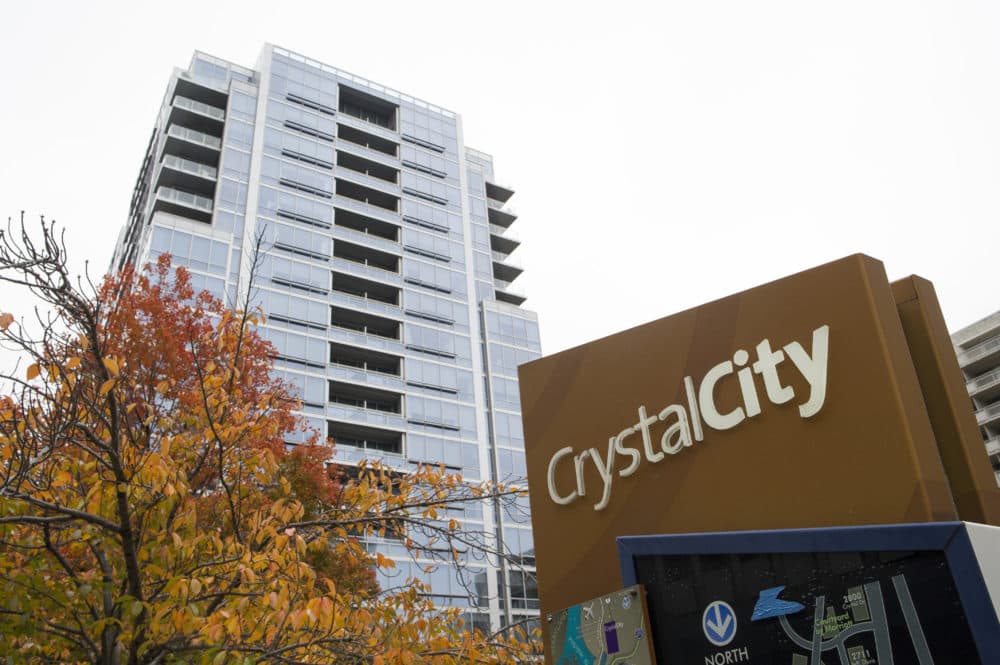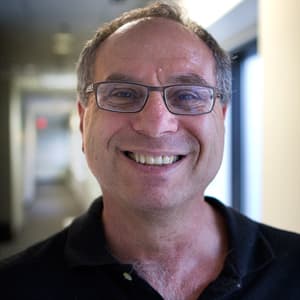Advertisement
Amazon Doesn't Deliver Its HQ2 To Boston
Resume
Boston and Somerville were contenders, even finalists, in the Amazon selection process to locate its second headquarters. But in the end — to the relief of some here and the sadness of others — the giant online retailer decided to split the site in two and set up new its headquarters in Northern Virginia and Queens, New York.
The promise of 50,000 high-paying jobs and $5 billion in construction had more than 200 cities competing in Amazon's HQ2 sweepstakes.
But Harvard Business School professor Sunil Gupta says he thinks "Amazon moving to any city is a mixed bag."
Gupta has written the HBS case study of Amazon, updating it every year since 2013.
"The good thing is all the jobs and the economic growth that comes with it," he says. "The downside, as we know, is the congestion, the housing prices, etc., that will go up."
The online real estate company Zillow estimates that if Amazon were to have chosen Boston as its new headquarters, the area would have to add more than 2,700 new housing units a year just to keep up with demand. "So I don't think it's necessarily a bad idea if Amazon doesn't come," Gupta says.
The Amazon bidding process has been a lesson for Boston. "We have done the homework and we looked at our weaknesses that we have to beef up to attract other companies," Gupta says.
No place Amazon looked at was perfect. New York and Virginia, like Boston, have a shortage of housing, soaring rents and deeply troubled mass transit systems.
The old Suffolk Downs racetrack site, that Amazon had been eyeing, has a lot going for it. The 160-acre property straddles Boston and Revere, and two MBTA Blue Line stops make it a 10-minute ride into downtown Boston and Logan Airport.
But Jim Aloisi, a former state transportation secretary, believes the Blue Line needs a better link to the rest of Boston. "Suffolk Downs lacks that critical transit connectivity that takes a site from a decent site to a spectacular site," says Aloisi, who advocates connecting the Blue and Red lines. "We've got to lead the way with strategic investments in transit mobility in the inner core in order to maintain the jobs we have and to grow those jobs."
Amazon already has hundreds of employees in the Boston-Cambridge area and is constructing new space in the Seaport District, where thousands of workers will be employed. It's a boom to Boston's already booming construction industry.
New England's largest construction company, Suffolk, has cranes all over the city's skyline. Amazon's decision not to locate its HQ2 in Boston was expected by Suffolk's founder and CEO, John Fish. "I'm not surprised at all," he says.
Fish suggests Boston's relatively small size may have been a factor in not being chosen. He believes Amazon's decision to select two sites instead of one was a defensive move designed to please politicians and head off federal regulators.
"They need to build a strong political base," Fish says. "I think it's good politics, I don't think it's bad politics. But at the end of the day I think it had a lot to do with it."
Some places offered Amazon billions in incentives. Just what was in the Boston or Somerville bids isn't publicly known, yet. But from the very beginning there were fears the giant online retailer might make the cities a one-company town, and the intense, hard-driven Amazon corporate culture would clash with the area's personality and pace of life.
"Boston is a world-class city," says Fish, "and I think what people sometimes underestimate is that we have a certain culture in Boston and we're not going to change the rules of engagement for someone like Amazon or any other company. Other companies are interested in Boston, they will continue to be interested in Boston, and the right composition of businesses will eventually play itself out."
Corporate cultures run deep. Amazon's CEO, Jeff Bezos, says he makes big decisions, like HQ2, based on gut feelings.
Bezos founded Amazon with his fabled "pizza rule": The most efficient meeting is where all the participants can be fed with just two pizzas.
At Boston's Pizzeria Regina two large pizzas could efficiently serve six people, setting you back around $30. The original restaurant, founded in the North End in 1926, was recently named by Trip Advisor as serving the best pizza in America.
Sitting on bar stools splitting a big pie, Mike Fothergill from San Francisco and his buddy Jake Wilda from Phoenix came to Boston to take in a Patriots game and pay homage to Regina's.
Amazon's decision not to locate in Boston was the subject of conversation. The friends disagree. Fothergill says Boston missed a bullet.
"I mean I'm from San Francisco, so I'm in the tech capital," he says, "and it does bring a lot of money into it, but then again when you live there for a while, you kind of get sick and tired of it."
Wilda does not understand Bezos' gut decision. "As far as Amazon though, why wouldn't you want to be here? If I'm looking for pizza I'm not going to Phoenix for pizza. I'm coming here. 'Amazon, you're going to miss out on Boston, I don't know where the hell you're going to go."
Amazon is going to New York, where they claim the pizza is pretty good, and Virginia, where, well, fortunately, Regina delivers long distance.
This segment aired on November 13, 2018.
